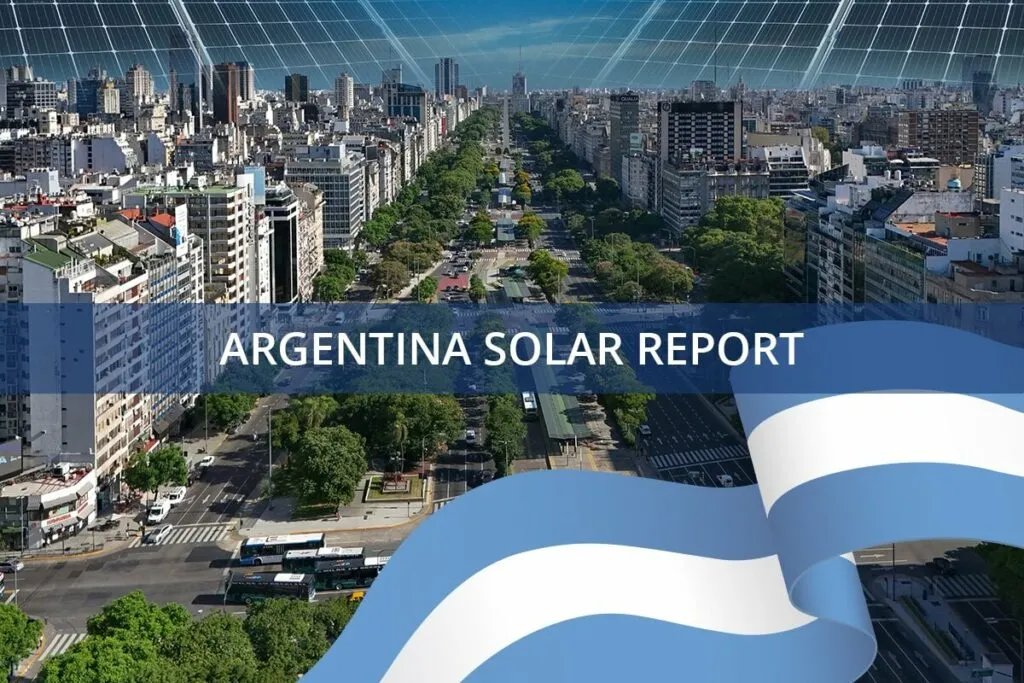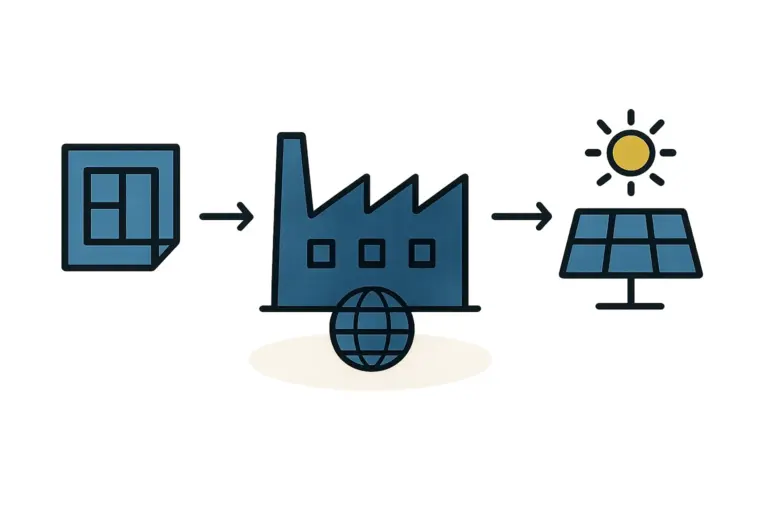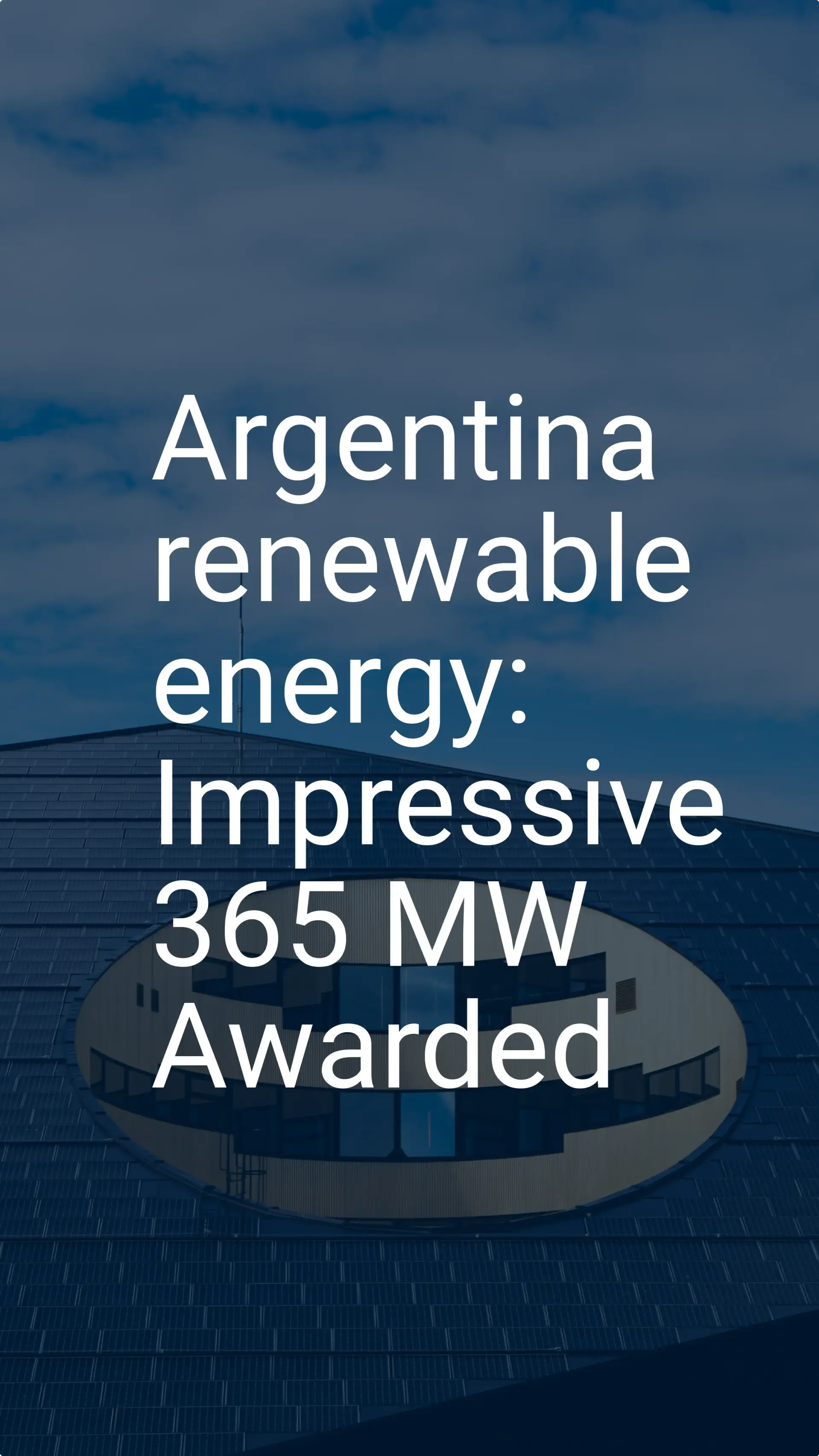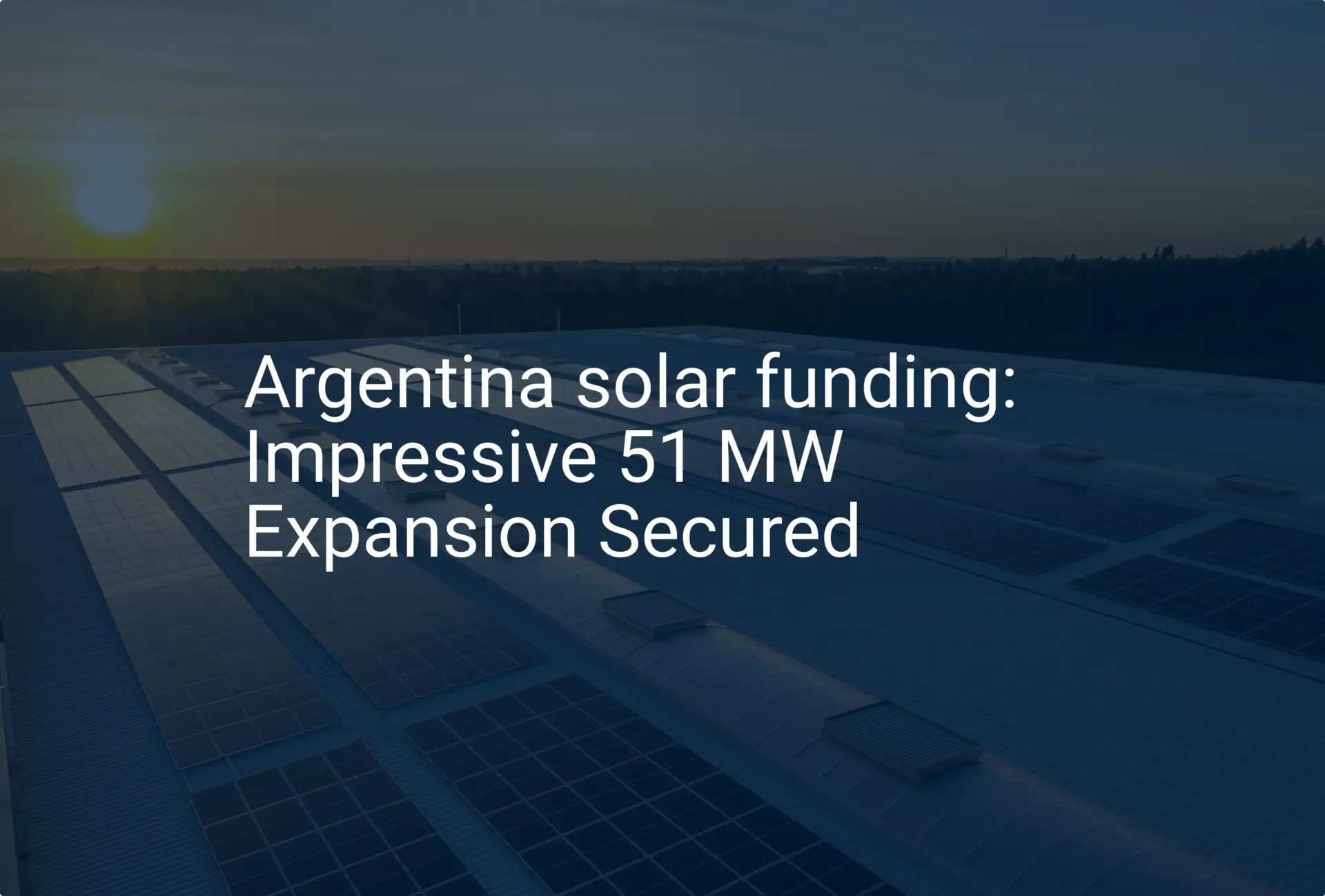Unlocking Argentina’s Solar Future: A Comprehensive Guide to Government Incentives & Financial Support for Solar Manufacturing Investment
Argentina, a nation blessed with abundant sunshine, is taking impressive strides in its transition to renewable energy. With ambitious national targets and a growing awareness of solar power’s economic and environmental benefits, the country is becoming a compelling landscape for investment—especially in the local manufacturing of solar modules.
As Argentina works to bolster its energy independence and foster industrial growth, the government is rolling out a range of incentives and financial support mechanisms to attract and nurture this burgeoning sector.
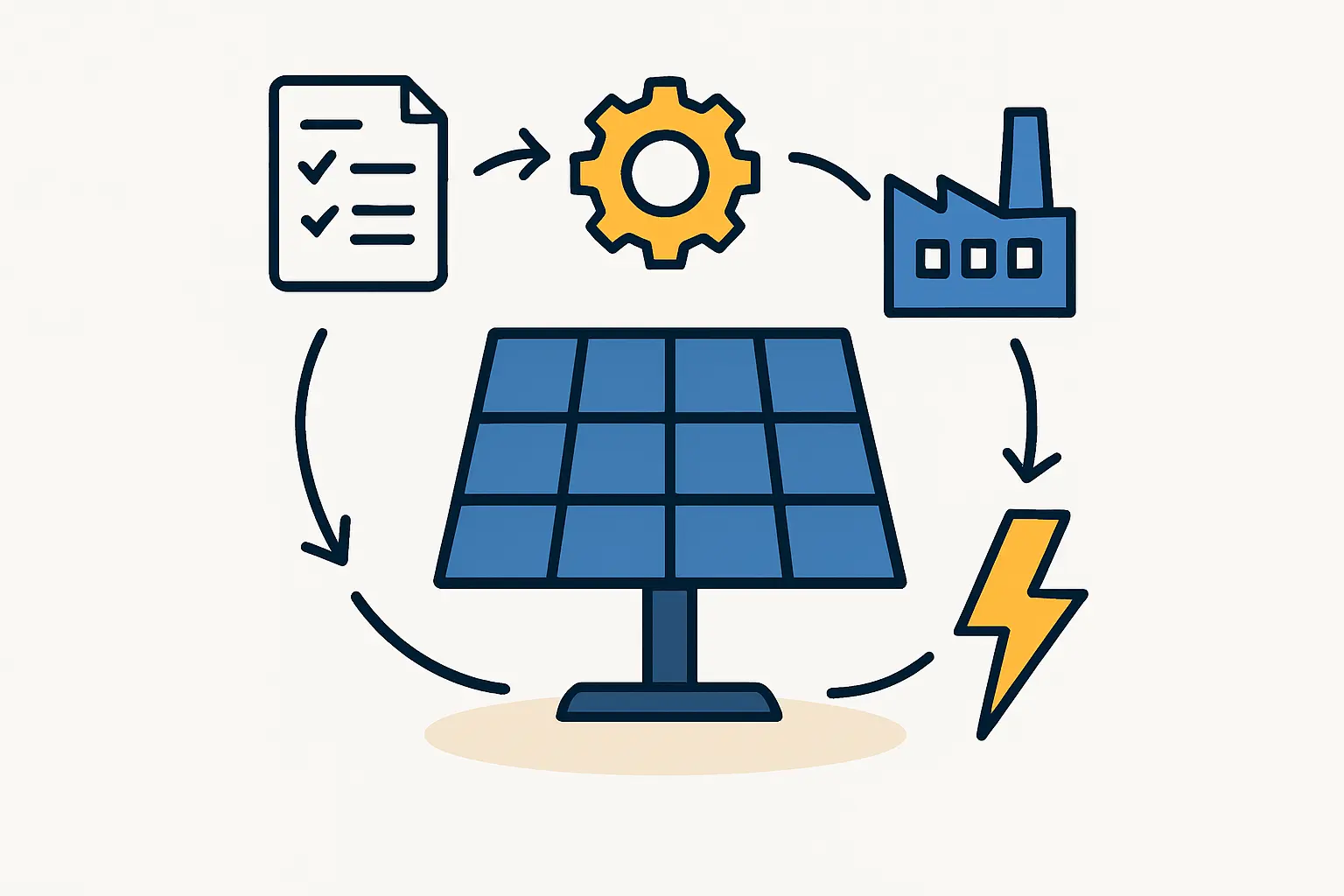
This guide explores the key policies, financial programs, and fiscal benefits available to entrepreneurs, companies, and public-sector stakeholders considering an investment in solar module manufacturing in Argentina. We also outline the practical steps for leveraging government support to establish a successful production facility. A clear grasp of these drivers is essential for assessing financial viability and maximizing returns in this promising solar market.
Table of Contents
Imagine your solar future, clearly defined.
Begin with our free e-course to grasp the essentials, or accelerate your progress with our specialized services. For the visionary entrepreneur, our Premium Business Plan E-Course delivers the advanced strategies to launch a truly impactful solar venture. Power your world, and your profits, effortlessly.
Argentina’s Renewable Energy Landscape & Policy Framework
At the heart of Argentina’s clean energy push are its national policies. The country has set ambitious goals, initially aiming for 20% of its electricity consumption to come from renewable sources by 2025 (Law 27,191), with its sights set on even higher contributions in the decades to follow. Key legislation, including Law 26,190 and its successor Law 27,191 (“Regime for the National Promotion of the Use of Renewable Energy Sources for Electricity Production”), forms the foundation of this transition.
These laws don’t just establish renewable energy targets; they also outline various promotional benefits to encourage investment. The strategic importance of a local solar manufacturing industry is increasingly recognized as a way to:
- Reduce reliance on imported components
- Create skilled jobs and foster technological development
- Enhance energy security and supply chain resilience
- Contribute to national economic growth and value addition
Establishing local manufacturing capabilities is a pivotal step for any country aiming to fully harness its renewable energy potential—a trend we at PVknowhow.com have seen play out globally—and Argentina is actively creating an environment favorable for such ventures.
Flagship Program: RenovAr and its Legacy for Manufacturing
The RenovAr Program, a series of public tenders for renewable energy capacity, has been instrumental in kickstarting Argentina’s utility-scale solar boom. While RenovAr was primarily focused on energy generation projects, its ripple effects have greatly boosted the prospects for local solar manufacturing:
- Market Creation: By awarding contracts for substantial solar PV capacity (over 1.7 GW in its early rounds alone), RenovAr created strong, consistent demand for solar modules and components. This growing domestic market is a primary driver for any local manufacturing initiative. As a case in point, prices in RenovAr auctions saw a significant drop, with Round 1 averaging $59.75/MWh for solar and falling to just $41.52/MWh in Round 2—a clear sign of a maturing market.
- Supply Chain Development: The program stimulated the development of a broader ecosystem around solar energy, including logistics, installation expertise, and project management—all essential support systems for a manufacturing base.
- Skilled Workforce: The influx of solar projects has helped develop a workforce with experience in solar technologies, an invaluable asset for any new manufacturing operation.
- Incentivizing Local Content: Some rounds of RenovAr cleverly included provisions or scoring benefits for projects that used locally sourced components, signaling the government’s clear intent to foster domestic production.
While RenovAr’s primary focus was generation, its success laid a crucial foundation, creating the scale and market confidence needed for serious investment in solar module manufacturing.
Dedicated Financial Support: FONDER (Fondo para el Desarrollo de Energías Renovables)
The Fondo para el Desarrollo de Energías Renovables (FONDER) is one of the most critical financial instruments established under Law 27,191 to support the growth of renewable energy in Argentina. Managed by the Ministry of Economy, FONDER plays a vital role in de-risking investments and improving access to capital.
How does FONDER support solar manufacturing?
While FONDER has broadly supported renewable energy generation, its mechanisms can be pivotal for those looking to establish a solar manufacturing facility:
- Financial Guarantees: FONDER can provide guarantees to lenders. This reduces the perceived risk of investing in a new manufacturing venture, making it easier to secure private sector loans.
- Credit Enhancements: It may offer other forms of credit support to improve the financial terms of loans for capital-intensive manufacturing setups.
- Direct Financing (Soft Loans): In some cases, FONDER may also offer direct loans at favorable terms for projects that align with national renewable energy objectives, which could include the establishment of strategic manufacturing capabilities.
- Risk Mitigation: By absorbing certain project risks, FONDER helps make investments more attractive and financially viable.
Eligibility and Application:
To be eligible, entities hoping to establish solar module production lines will typically need a robust business plan demonstrating the project’s technical feasibility, economic viability, and contribution to national renewable energy goals. The application process generally involves a submission to the Secretariat of Energy or other relevant authorities overseeing FONDER.
The FODIS (Fund for the Distributed Generation of Renewable Energies) is also worth noting. While it focuses on smaller-scale distributed generation, it also contributes to the overall demand for solar panels and could indirectly support local manufacturers by growing their customer base.
Capitalizing on Green Finance: Green Bonds and Other Mechanisms
The support doesn’t stop with direct government funds. Argentina is also tapping into a range of sustainable finance mechanisms to fuel its clean energy transition.
Green Bonds are debt securities specifically earmarked to raise capital for projects with positive environmental or climate benefits. We’ve already seen successful issuances by provinces (like La Rioja and Jujuy) and corporations to finance renewable energy projects. There is significant potential for Green Bonds to be structured to fund new solar manufacturing plants, perfectly aligning with investors’ growing appetite for sustainable and impactful investments.
Companies planning manufacturing facilities can:
- Explore issuing their own Green Bonds
- Seek investment from funds that specialize in green projects
International Development Banks, such as the World Bank and the Inter-American Development Bank (IDB), have historically been strong supporters of Argentina’s renewable energy sector. They may offer financing, technical assistance, or guarantees for strategic projects—including manufacturing initiatives that align with their development mandates.
Finally, a growing pool of private equity and impact investors is actively seeking opportunities in the renewable energy value chain. A well-structured solar manufacturing project with strong market potential and clear ROI drivers—especially one enhanced by government incentives—is precisely the kind of venture that attracts these savvy investors.
Comprehensive Fiscal Incentives & Tax Exemptions for Solar Manufacturers
From a bottom-line perspective, the fiscal incentives are particularly compelling. Argentina offers a comprehensive suite of incentives at both federal and provincial levels, designed to reduce the initial investment burden and operational costs for renewable energy projects, including solar manufacturing.
Federal Incentives (Primarily under Law 27,191 and related regulations):
- Exemption from Import Duties: Solar manufacturers can benefit from the duty-free import of capital goods, equipment, machinery, parts, and essential components not available domestically that are needed to build and operate a production line.
- Accelerated Depreciation of Assets: Companies can depreciate their capital goods at an accelerated rate for corporate income tax purposes. This allows for a quicker recovery of investment costs and improves cash flow in the critical early years.
- Early VAT (Value Added Tax) Recovery: Businesses investing in infrastructure and capital goods for renewable energy projects may be eligible for an early reimbursement of the VAT paid on these purchases or can claim it as a tax credit. This provides a significant boost to project liquidity.
- Tax Credit Certificates: The regime allows for the issuance of tax credit certificates for investments in new renewable energy generation that incorporates locally made components. This directly drives demand for locally made modules, which is a huge benefit for manufacturers.
- Reduced Tax Rates or Stability Agreements: In some cases, specific projects might benefit from reduced tax rates or fiscal stability agreements, ensuring that tax conditions remain locked in for a defined period.
Provincial and Municipal Incentives:
Many Argentine provinces offer their own additional incentives to attract investment, which can be particularly beneficial for manufacturing facilities:
- Turnover Tax (Ingresos Brutos) Exemptions: Partial or even full exemptions from this provincial tax can significantly lower your operational costs.
- Stamp Duty (Sellos) Exemptions: You might get an exemption from stamp duty on contracts, loan agreements, and other legal documents related to the investment.
- Real Estate Tax Exemptions: This could include reduced or waived property taxes for the land and buildings used for your manufacturing facility.
Provinces with high solar potential and proactive renewable energy policies—such as San Juan, Jujuy, Mendoza, and Salta—are often the ones providing the most attractive local incentive packages.
Incentives for Local Content:
Beyond the direct fiscal benefits, government policies promoting “local content” in renewable energy projects provide another layer of indirect support. By requiring or incentivizing generation projects to use a certain percentage of locally produced components (like your solar modules), the government effectively creates a guaranteed market for local manufacturers. This remains a key policy lever for encouraging industrial development.
The New Regime for Large Investments (RIGI)
A recent and potentially game-changing development is the “Régimen de Incentivo para Grandes Inversiones” (RIGI), or Regime for Large Investments. While the ink is still drying on some details, RIGI aims to attract substantial, long-term investments (typically exceeding $200 million) across various sectors, including energy and technology.
For a large-scale solar manufacturing project, RIGI could offer:
- Enhanced Tax Benefits: Potentially including reduced income tax rates and exemptions from various other federal taxes.
- Customs Benefits: Streamlined import/export procedures and exemptions that go beyond the standard regimes.
- Foreign Exchange Stability: Greater flexibility and stability regarding foreign exchange controls, which is important for export-oriented projects.
- Regulatory Stability: Guarantees against adverse regulatory changes for a specified period, giving investors much-needed peace of mind.
Prospective investors in large solar manufacturing plants should monitor the development and specific conditions of RIGI closely, as it could offer substantial advantages.
Navigating the Application Process: A Practical Guide
Accessing these incentives requires careful planning and adherence to specific application procedures. The general roadmap involves the following steps:

- Identify Relevant Incentives: Determine which federal, provincial, and potentially municipal incentives apply to your specific solar manufacturing project.
- Contact Key Government Bodies: Your primary points of contact will usually be the National Secretariat of Energy and provincial energy secretariats, ministries of production, and local investment agencies.
- Prepare Comprehensive Documentation: This is the heavy lifting. You’ll need a detailed business plan, technical specifications, financial projections, proof of legal standing, environmental impact assessments, and details on job creation.
- Submit Applications: Follow the specific submission guidelines for each program to the letter.
- Follow-Up and Compliance: Stay in communication with the relevant agencies and ensure you remain in full compliance with the terms of any incentives you receive.
Tips for a Successful Application:
- Clearly articulate how your project contributes to Argentina’s renewable energy goals and local industrial development.
- Demonstrate strong technical expertise and a viable, well-thought-out business model.
- Engage with local advisors or consultants who are familiar with the Argentine regulatory landscape. It’s an investment that pays for itself.
- Meticulous preparation of all documentation is critical to success.
Current State and Opportunities in Argentina’s Solar Manufacturing Sector
While Argentina’s solar generation capacity has grown impressively (from around 8 MW in 2017 to over 1,400 MW recently), the local solar manufacturing sector is still in its early stages. This is precisely where the opportunity lies—it holds immense promise.
- Developing Capacity: The establishment of Argentina’s first large-scale solar panel factory in San Juan province, expected to be operational soon, signals a pivotal move toward domestic production. This project alone aims to meet a significant portion of the growing local demand.
- Market Demand: With national targets aiming for potentially 4.5-5 GW of solar PV by 2030, the demand for solar modules is substantial and only expected to grow. Local manufacturing can cater to this demand, reducing import dependency.
- ROI Drivers Enhanced by Government Support: When you combine a growing market, abundant solar resources, and comprehensive government incentives, you get a recipe that significantly enhances the ROI potential for solar manufacturing in Argentina.
Challenges and Considerations for Investors
No investment landscape is without its challenges. Potential investors should be aware of several key factors:
- Economic Climate: Argentina has faced periods of economic instability, including high inflation and currency fluctuations. Investors need to factor these risks into their financial planning.
- Infrastructure and Logistics: While improving, logistical challenges in certain regions might impact supply chains and project timelines.
- Regulatory Stability and Policy Continuity: Ensuring long-term policy consistency is crucial for investor confidence. The current strong push for renewables is a positive sign, but investors will be looking for a sustained commitment.
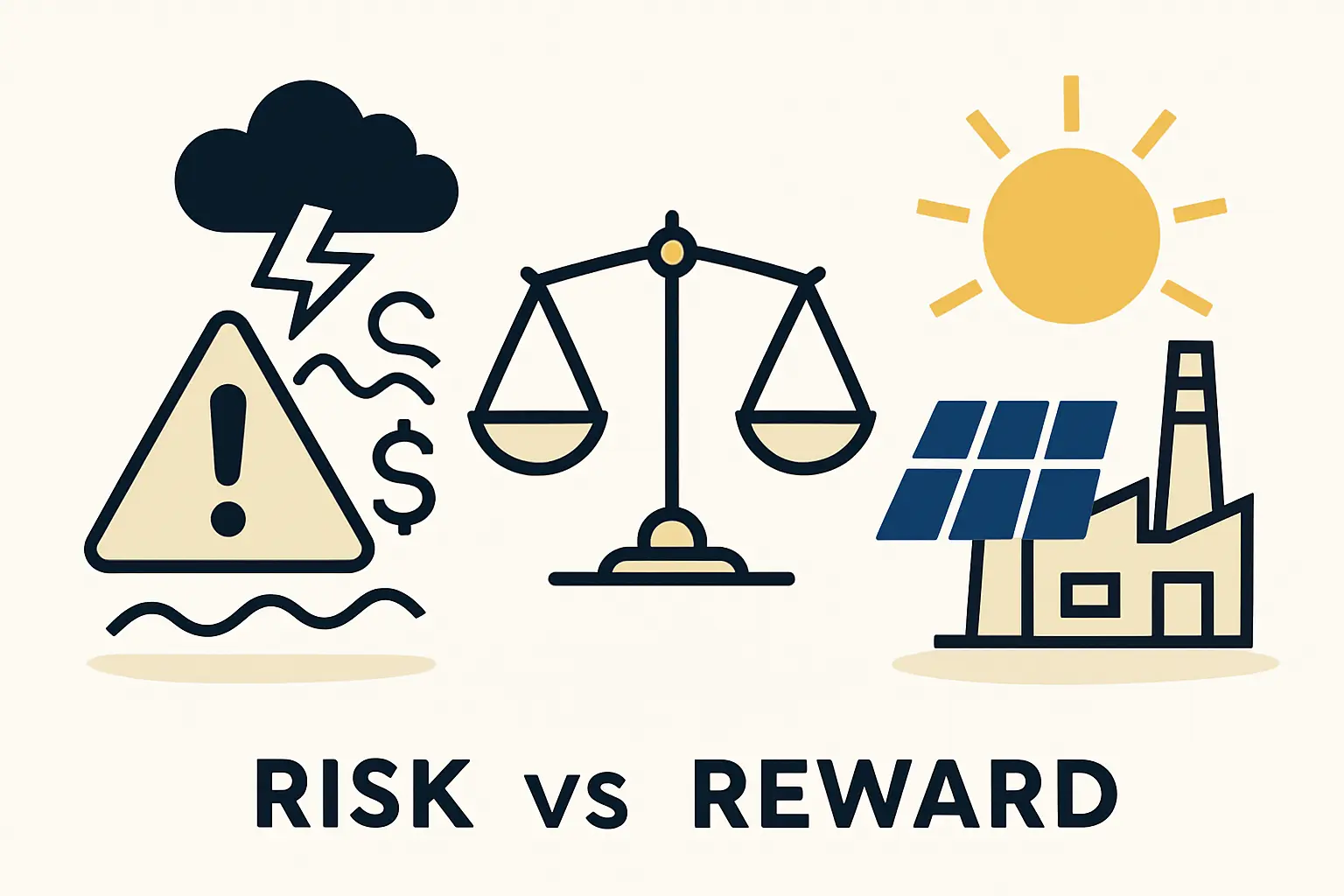
Mitigation Strategies:
- Conduct thorough due diligence and build robust financial models that account for risk.
- Seek fiscal stability agreements wherever possible.
- Partner with local entities who have established experience.
- Consider focusing on export potential to diversify your market risk.
Conclusion: Powering Argentina’s Solar Manufacturing Ambition
Argentina stands at a promising crossroads on its renewable energy journey. The government’s clear commitment, backed by a comprehensive framework of financial support and fiscal incentives, is creating fertile ground for investment in solar module manufacturing.
From the market-driving force of the RenovAr program and the financial tools of FONDER to an array of tax exemptions and the potential benefits of new regimes like RIGI, the support structure is designed to attract and nurture this vital industry.
For entrepreneurs with the vision to establish local solar production, Argentina offers not just vast solar resources but also a proactive policy environment aimed at turning that potential into tangible industrial growth. By carefully navigating the available incentives and leveraging deep technical expertise, investors can play a key role in building Argentina’s clean energy future while establishing profitable, sustainable manufacturing operations.
PVknowhow.com, with our extensive experience in guiding entities through every stage of building and operating solar factories worldwide, recognizes the immense potential in Argentina. We encourage prospective investors to thoroughly explore these opportunities and help contribute to a more energy-independent and sustainable Argentina.

